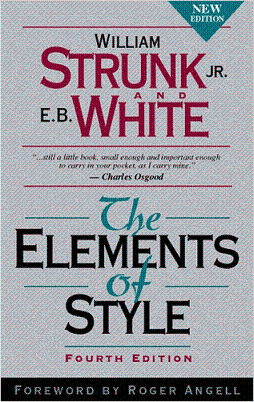Before I share my rewrite (on page two) of Greg Miller's now infamous review of Dead Space 2 on IGN, let's be clear on what this is about by sharing the following, all-too-relevant passage from William Zinsser's ubiquitous On Writing Well:
Few people realize how badly they write. Nobody has shown them how much excess or murkiness has crept into their style and how it obstructs what they are trying to say. If you give me an eight-page article and I tell you to cut it to four pages, you'll howl and say it can't be done. Then you'll go home and do it, and it will be much better. After that comes the hard part: cutting it to three...
(Bonus!) Many of us were taught that no sentence should begin with "but." If that's what you learned, unlearn it – there's no stronger word at the start.
Some people might see publishing an edit publicly like this as a dick move, but the situation has already reached a boiling point. This is not a personal attack on Greg Miller, but a firm examination of his review and by extension of the current state of popular gaming criticism. Nor is this meant to be a haughty display of my writing prowess, for Greg Miller is not the only professionally paid game reviewer, let alone writer, whose work is subject to criticism. I could grab a review I wrote on Game Revolution and find sentences that could be clearer and more refined. The difference is that I can tell.
This is a fight for the craft of writing in our industry. The Dead Space 2 review is merely the present figurehead of a deeper problem. I have read comment after comment of people on Reddit, N4G, IGN, even Game Revolution who don't know what the fuss is all about, don't see anything wrong with the review, don't care, or worst of all, don't believe video game reviews deserve to be well-written.
Have our standards for video game criticism fallen so low that game reviewers need to convince their audience that writing should be good? How do we ever expect video games to be respected as an artform on par with painting, music, film, and literature if our leading gaming press and critics do not respect their own medium – the written word?
On a parallel note, how can Greg Miller improve as a writer if the only critiques he receives are snarky responses from journalism blogs and Reddit image corrections splattered with red circles and unconstructive comments (only two-thirds of which I agree with), Reddit image corrections of the corrections, and Reddit image corrections of the corrections of the corrections? Writing a professional quality critique is as difficult as writing a professional quality review. But seemingly no one at IGN has told him the problems with his review or stopped it from being published, so something in the editing process there has broken and needs to be fixed immediately.
At the same time, we should not expect a professional reviewer to pen a Pulitzer every time a video game about shooting aliens in the head comes out. That would be a fantasy, and an unnecessary one at that. What we should expect from the common review, simply as a reader, is that it be tight, precise, direct, descriptive if necessary, informative, and clear.
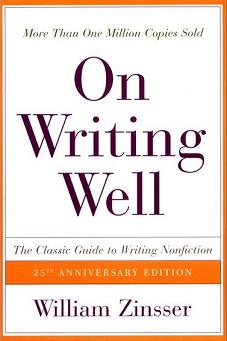 On those points, Miller's Dead Space 2 review is not terrible, just average at best. It's simple, straightforward, and clear enough that his positive point of view comes across, but it's far from being economical, precise, and aware of its word choice and sentence structure. It's a rough draft. While the review is generally free of rule-bound grammatical errors, it commits offenses of varying degrees that any student of writing will recognize: word count-filling fluff, the over-reliance on conjugated 'be' verbs, occasional vagueness, repetition, and the sudden shifts between first-person ('I'), second-person ('you'), and the subject of Dead Space 2.
On those points, Miller's Dead Space 2 review is not terrible, just average at best. It's simple, straightforward, and clear enough that his positive point of view comes across, but it's far from being economical, precise, and aware of its word choice and sentence structure. It's a rough draft. While the review is generally free of rule-bound grammatical errors, it commits offenses of varying degrees that any student of writing will recognize: word count-filling fluff, the over-reliance on conjugated 'be' verbs, occasional vagueness, repetition, and the sudden shifts between first-person ('I'), second-person ('you'), and the subject of Dead Space 2.
Furthermore, simple language is not an excuse for a lack of editing. William Zinsser believes that "clutter is the disease of the American language". If so, this review needs critical treatment; and thus, a rewrite.
In fact, think of this as an extensive peer review, not far from an assignment in English class. While I tried to maintain the point of view and words of the writer as much as possible, this is not a light-handed edit normally done by a professional editor, which is essentially my day job. Most sentences in the review have been broken or reformed, and the second-person has been removed. However, the paragraph structure and the first-person remain generally intact; altering those would turn this rewrite into an entirely different review.
[In short (especially if you skipped reading everything I wrote on page one), I recommend opening the original review for a handy side-by-side comparison. You can even read Jesse's Dead Space 2 review on our site for extra credit. Either way, snarkiness aside, you should see the difference. The included images are there only to break up what would otherwise be a wall of text.]
Dead Space 2 is an amazing game – scary moments, cool kills, and an endearing story enriched by the main character's internal struggle. But it's much more than that. Even after I beat the game, my heart continued to race. When I finally calmed down, I started my second playthrough. And when that was done, I started my third.
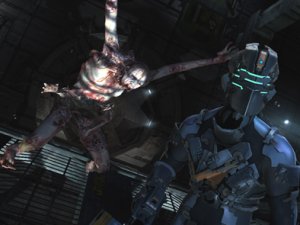 It's been three years since the events of the first game, but protagonist Isaac Clarke still can't catch a break. At the beginning of Dead Space 2, he finds himself on a space station known as the Sprawl, overwhelmed by an outbreak of reanimated corpses called Necromorphs. Isaac quickly swipes a plasma cutter, dons an engineering suit, and scours the station in search of the religious idol known as the Marker, the source of all the mayhem.
It's been three years since the events of the first game, but protagonist Isaac Clarke still can't catch a break. At the beginning of Dead Space 2, he finds himself on a space station known as the Sprawl, overwhelmed by an outbreak of reanimated corpses called Necromorphs. Isaac quickly swipes a plasma cutter, dons an engineering suit, and scours the station in search of the religious idol known as the Marker, the source of all the mayhem.
But beyond the common fight for survival, it is Isaac's internal conflict that humanizes the story. Unlike Uncharted's Nathan Drake, who can kill a few hundred pirates and remain seemingly unfazed, Isaac has been traumatized by his experiences, racked with guilt over endangering and failing to protect his girlfriend on the USG Ishimura in the first Dead Space. Though he acts as if nothing bothers him, the player comes to understand that this is just a fragile facade that hides his true thoughts and hallucinations.
Most people around him wouldn't know this, though, because Isaac plays the role of the badass exceptionally well. He's fast and light on his feet, stomps crates with ease, attacks corpses for loot, and grabs objects with telekinesis. He can even slow down a Necromorph, blow its arm off, and use the severed arm to impale the foe on a wall.
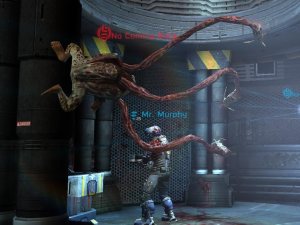 No longer a scared engineer tossed into hell, Isaac is the kind of hero who is meant to survive what is the most spine-chilling haunted house ever conceived by a video game. By stripping out the backtracking and sporadic disorientation from the first Dead Space, this sequel remains fast-paced, suspenseful, and scary. The purposefully linear environments of confined hallways and corridors, of pitch-black rooms and cheery schoolhouses, heightens every sound and silence. Was that a monster making its move or just my dog rummaging in the living room?
No longer a scared engineer tossed into hell, Isaac is the kind of hero who is meant to survive what is the most spine-chilling haunted house ever conceived by a video game. By stripping out the backtracking and sporadic disorientation from the first Dead Space, this sequel remains fast-paced, suspenseful, and scary. The purposefully linear environments of confined hallways and corridors, of pitch-black rooms and cheery schoolhouses, heightens every sound and silence. Was that a monster making its move or just my dog rummaging in the living room?
Getting through Dead Space 2 alive means making good use of returning weapons, such as the saw blade-spitting Ripper, as well as new items, like the three-laser Detonator trip mine. Each of these weapons – along with your suit, telekinesis, and stasis module – can be upgraded for maximum ass-kicking, and then saved and carried over to your next playthrough. Suffice it to say, wanting to obtain a new suit or pimped-out weapon is enough of an incentive to play the game over.
Also included is "Hardcore" mode, and it's nothing less than sadistic: tough enemies, limited supplies, no checkpoints, and dying means restarting from the last save. Oh, and saves can only be made three times. Good luck with that.
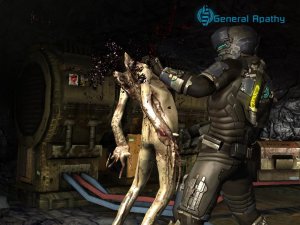 On the downside, how missions are relayed hampers the overarching story. Though having Isaac wrestle with his inner demons enhances the narrative, Isaac is constantly told what to do and where to go by characters whose only purpose is to do just that. The search for the Marker should lead Isaac down the path of maturity as a protagonist, but these rigid orders don't allow him to take charge of his own fate.
On the downside, how missions are relayed hampers the overarching story. Though having Isaac wrestle with his inner demons enhances the narrative, Isaac is constantly told what to do and where to go by characters whose only purpose is to do just that. The search for the Marker should lead Isaac down the path of maturity as a protagonist, but these rigid orders don't allow him to take charge of his own fate.
Another stumble is the barebones multiplayer, which has five modes played on separate maps. Players are broken into two teams: the humans have an objective and the Necromorphs are out to stop them at all costs. All this boils down to humans running to some vague objective, holding out as long as they can, and then dying, while Necromorphs hope to deal what little damage they can to a weakened opponent or set the kill up for a friend. The droll pacing feels out of place for a Dead Space title.
On console specifics, the PlayStation 3 version comes with Dead Space Extraction, and getting it in HD with Trophy support is a win. It also supports the PlayStation Move and the regular controller, both of which work well.
Dead Space 2 is more than just an action game or a survival horror game – it reveals the scars lying beneath a hero's skin. This is only bettered by rewarding combat, shocking enemies, and a world that's unforgettably creepy. Although the multiplayer isn't interesting and Isaac should be less of an errand boy, Dead Space 2 is an excellent game whose extraordinary single-player is well worth your time and money.
